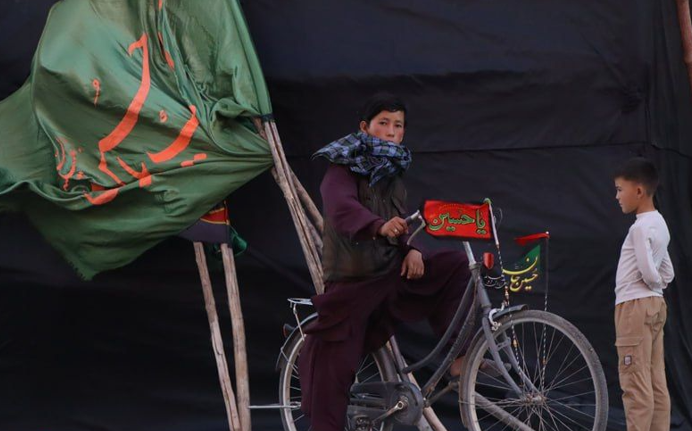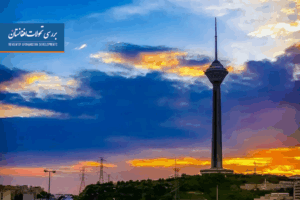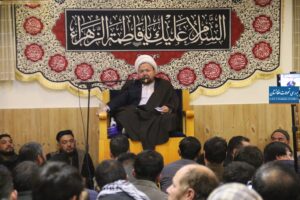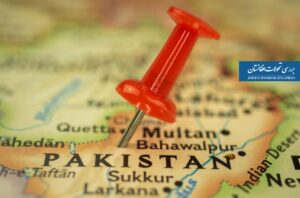Review of Afghanistan developments
Arbaeen marks the 40th day anniversary of the martyrdom of Imam Hussein (AS) and his devoted companions during the Karbala incident, and it is took place with immense enthusiasm and grandeur annually across the Islamic world. Afghanistan is not an exception to this tradition, as the Shia community in the country, particularly in major cities and areas with a significant Shia population, observes this day as one of their most significant religious events.
In Afghanistan, Arbaeen transcends a mere religious observance. It has evolved into a representation of loyalty, defiance, and commitment to the principles of Ashura. During Arbaeen, Hussainiyyas, Takiyas, and mosques are set up to receive mourners, displaying black flags and fabrics embellished with the names of either Hussain or Zainab.
Special Arbaeen rituals in Takaya
The Arbaeen celebrations in Afghanistan typically commence with a sequence of recitations from the holy Quran. During these assemblies, scholars and preachers honor the valor of Imam Hussein (AS) and his companions by recounting the events of Karbala. These addresses are often accompanied by references to the difficulties faced by the Ahl al-Bayt (AS), particularly the challenges that arose after the martyrdom of the Imam.
A significant theme of the event is to honor the contribution of Hazrat Zaynab (peace be upon her) in delivering the message of Ashura. The speakers reference historical texts to recount her inspiring sermons in Kufa and the Levant, highlighting her patience and perseverance as exemplary qualities for the current generation.
Alongside the recitation of the rosary, the Arbaeen pilgrimage, recognized in Islamic texts as a manifestation of faith, is commonly undertaken by mourners. In numerous Hussainiyya, this pilgrimage is conducted in groups either in the morning or evening of Arbaeen.
Voting and Mourning Tables on Arbaeen
In Afghanistan’s religious culture, the month of Safar, particularly the day of Arbaeen, holds significant importance for making vows and offering food. Numerous families, especially women, engage in making vows during this period to commemorate Hazrat Zainab (peace be upon her) and to honor her unwavering strength. These vows may involve preparing and distributing food to those in mourning, assisting the less fortunate, or conducting religious ceremonies. It is quite prevalent for women to prepare halva during the month of Safar, and in certain instances, this tradition of vow-making has been passed down through several generations.
On Arbaeen, the streets and alleys are permeated with the scent of offerings. Men and women dedicate their time to prepare and distribute these offerings. For numerous individuals, serving on this day is regarded as a spiritual accomplishment.
Afghan pilgrims denied access to Arbaeen Walking
In recent years, a considerable number of Afghan citizens have made their way to Karbala during Arbaeen to take part in the massive procession that occurs on that day. For numerous individuals, this journey represented not merely a pilgrimage, but also a deeply meaningful spiritual and social experience.
However, this year, new restrictions have rendered that desire unfulfilled for numerous Afghans. Reports suggest that visas for the pilgrimage to Karbala were not granted to Afghan citizens during Arbaeen, and officials have declared that they will be delayed until after the sacred month of Safar. This announcement was disheartening news for those eager to visit Karbala, particularly for those who have been anticipating this chance for years.
The effect of religious restrictions on the splendor of the events
Alongside travel limitations, certain domestic religious constraints also impacted the grand observance of Arbaeen 2025. In various regions, limitations on the formation of street mourning groups, diminished freedom to conduct large religious assemblies, and heightened oversight of Hussainiyyas’ activities hindered some traditional mourning practices from occurring in their customary manner and extent. While these circumstances could not dampen the people’s fervor, they did influence the degree of participation and the public aspects of the event.
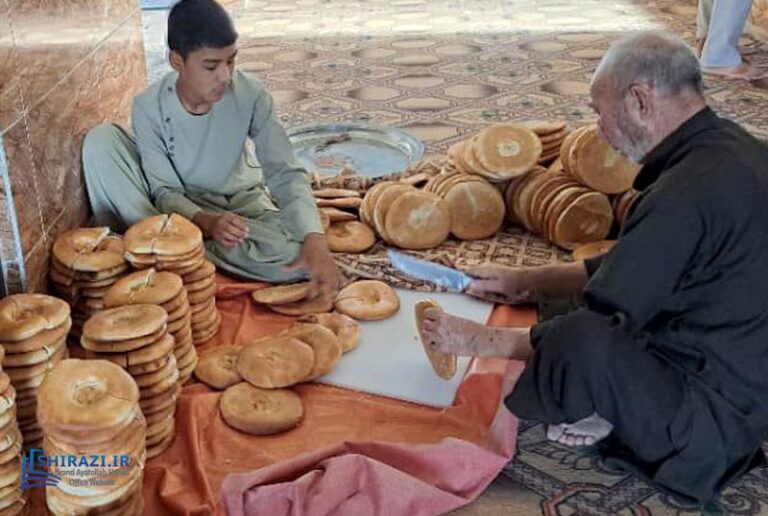
The Message of Arbaeen is beyond Borders
Despite the restrictions imposed this year on both travel and domestic activities, which posed challenges for those in mourning, the essence of Arbaeen—rooted in the struggle against oppression and the advocacy for truth—continued to resonate within people’s hearts. Additionally, local media and social networks significantly contributed to conveying the spirit of the Karbala ceremony to Afghanistan.
Certain religious organizations offered live streams of the Karbala ceremonies held in the Hussainiyya, enabling mourners to partake in the Arbaeen pilgrimage alongside millions of pilgrims in Iraq. While this could not substitute for the experience of being at the shrine of Imam Hussein (peace be upon him), it fostered a form of spiritual bond between the Afghan mourners and Karbala.
Read More
Afghanistan during Muharram 2025
Safe Muharram; Another Sign of ISKP’s Defeat
Conclusion
This year’s Arbaeen in Afghanistan took place in a distinct environment; while the people’s traditional fervor for organizing mourning gatherings and making vows persisted, the imposition of religious restrictions and the lack of pilgrim caravans to Karbala created a sense of sorrow among the populace.
Nevertheless, akin to the boundless essence of the Ashura message, Arbaeen transcends any particular location or moment within the hearts of the faithful. In spite of numerous challenges, the citizens of Afghanistan have once more demonstrated that their affection for Imam Hussein (AS) and the motivation derived from the Ashura uprising are integral components of their cultural and religious identity.
Follow us on social networks


